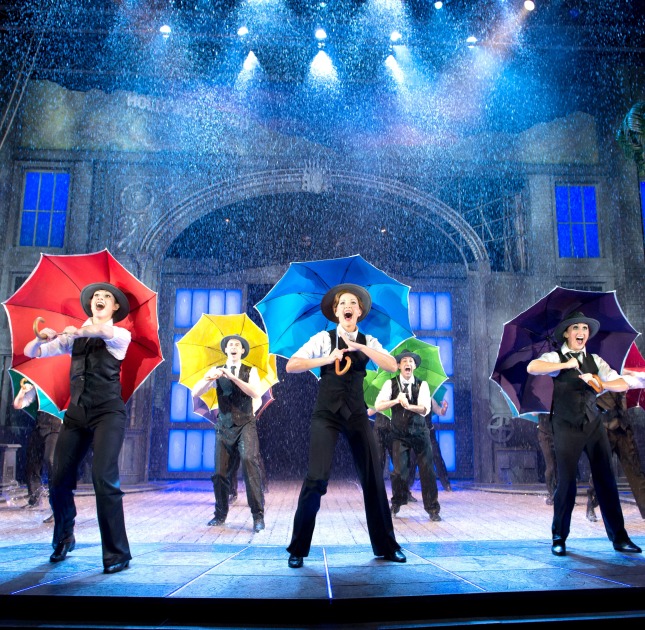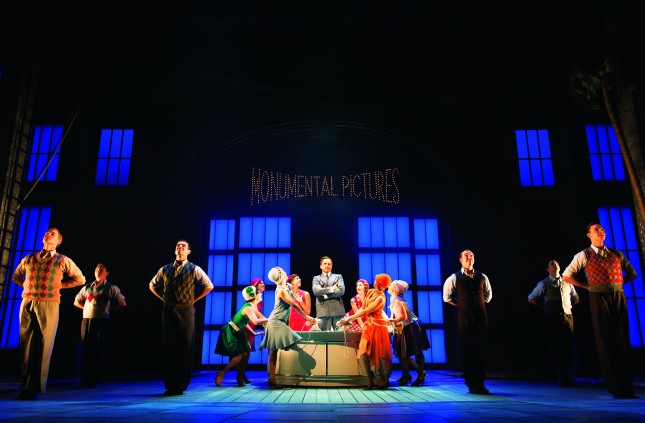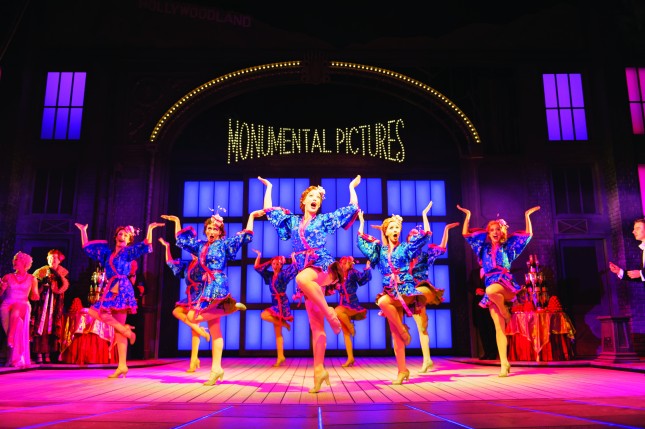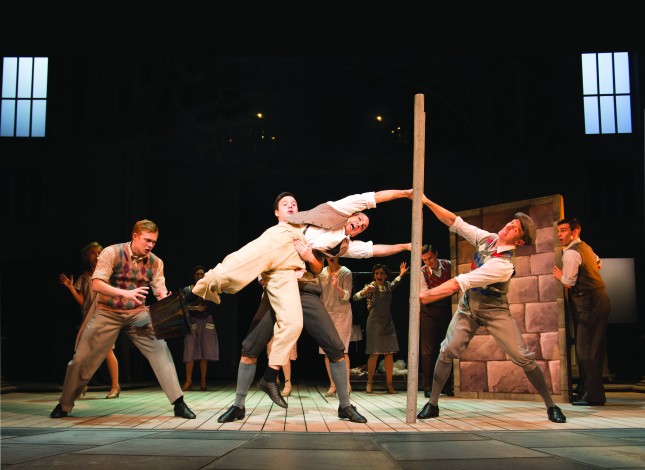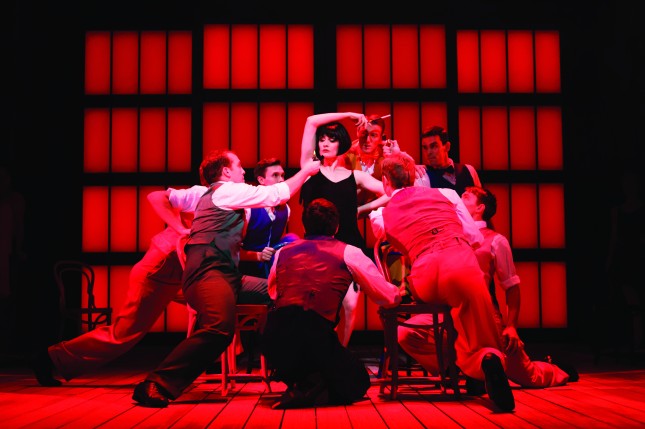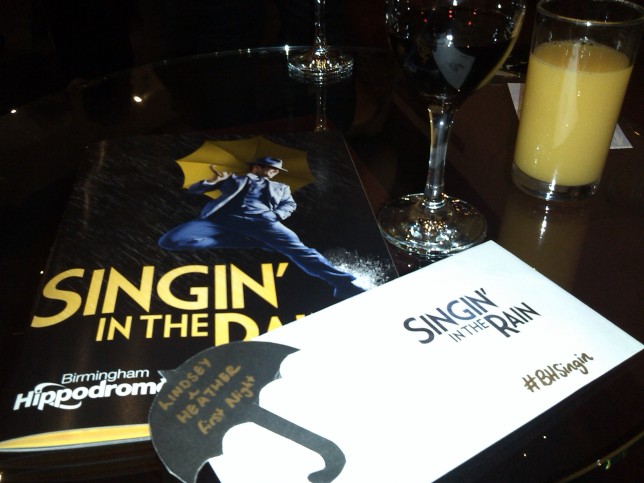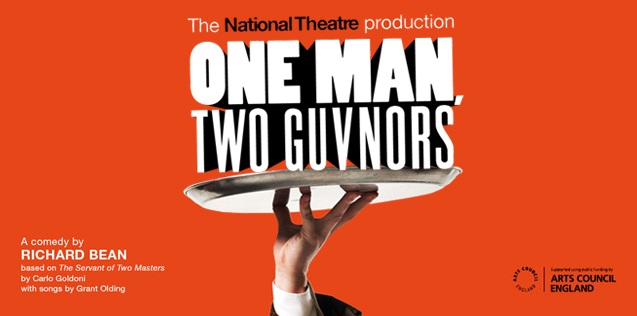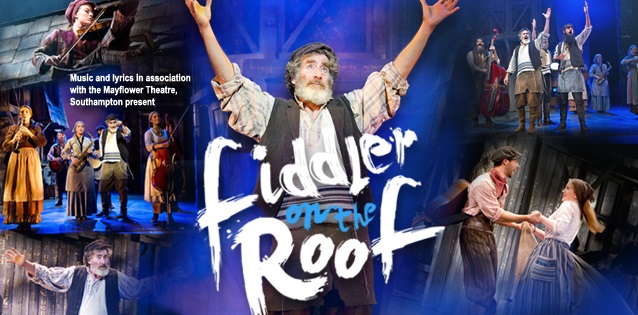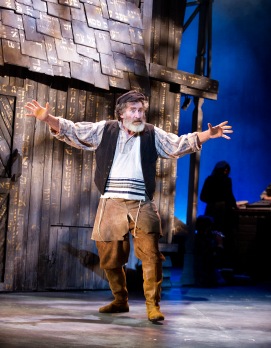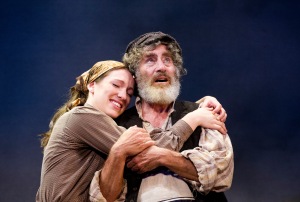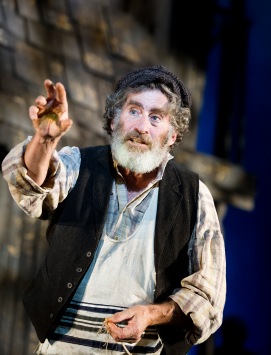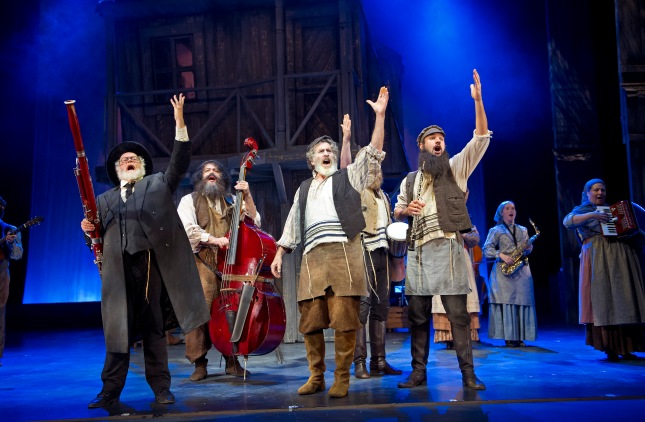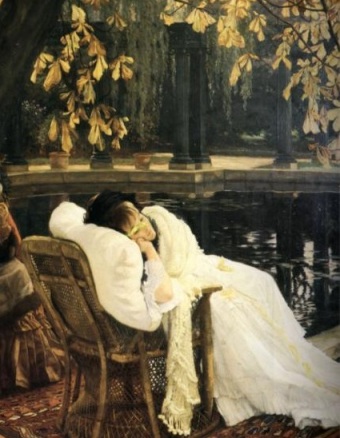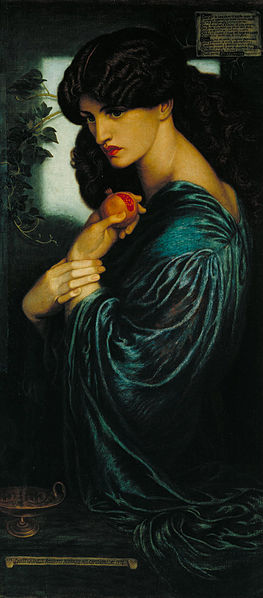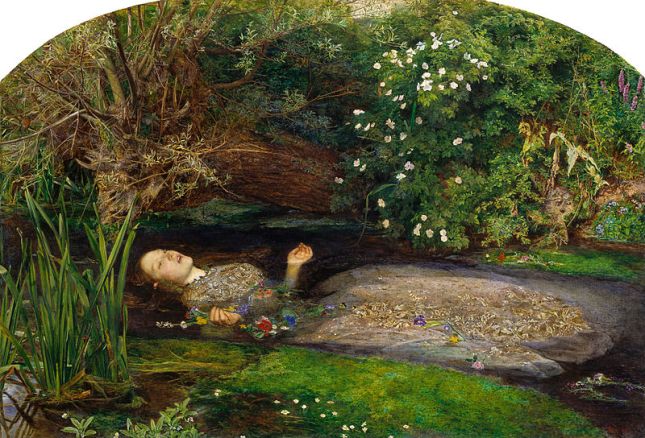Today (20th March) has apparently been declared International Happiness Day. With its boundless energy, classic songs and infectious feelgood vibe, what better way to celebrate the happy occasion than with Gene Kelly’s and Stanley Donen’s Singin’ in the Rain?
Regularly featured on lists of the greatest movies and musicals of all time, and with a rare 100% positive critical rating on Rotten Tomatoes, Singin’ in the Rain has become something of a cultural icon, firmly embedded in our collective consciousness. It tells the story of the first ever screen musical, created by the fictional Monumental Pictures in the 1920s to compete with the new “talkies” being made by rival companies, such as (the non-fictional) Warner Bros’ The Jazz Singer. The transition from silent to speaking films proves fraught for the studios, however: while protagonist Don Lockwood, his girlfriend Kathy Selden and their best friend Cosmo Brown all readily adapt to the changes, Monumental’s leading lady, Lina Lamont, doesn’t quite have a voice to suit her characters…
Somewhat unusually for a major musical like this, Singin’ in the Rain has been adapted from film to stage, rather than the other way around. Given the film clips and various special effects (from artificial rain to neon lights on Broadway) required to make the show work, bringing the story to live audiences is an incredibly ambitious undertaking, making Jonathan Church’s fantastic production for The Chichester Festival Theatre all the more impressive. Without losing any of the original movie’s wit, charm or sense of fun (though not without adding some special stage spectacle of his own), Church has successfully translated a film about the film industry into a live theatre piece, and to massive critical acclaim, in a production that would doubtless meet even Kathy Selden’s exacting standards.
Right from the beginning, Simon Higlett’s design work transports viewers instantly to the play’s late 20s setting, with lavish sets and beautiful, colourful costumes. Still more striking is Andrew Wright’s choreography, which the actors navigate with a seemingly boundless energy that’s liable to leave even audience members feeling exhausted!
James Leece makes for a convincing Don Lockwood, barely pausing for breath between elaborate dance sequences. Faye Tozer is spot on as the manipulative and demanding diva Lina, having here been granted her own dressing room solo which she hilariously squawks her way through. Studio boss R. F. Simpson and frustrated director Roscoe Dexter are also captured brilliantly by Maxwell Caulfield and Paul Grunert. Though quite different to her wide-eyed, youthful and headstrong movie counterpart (Debbie Reynolds was just 19 when she took on the role) Amy Ellen Richardson sings beautifully as Kathy, her final solo number that exposes Lina’s mischief having been switched from a lively rendition of the title track to the much more mellow and romantic “Would You?”. The real star of the show, though, is Stephane Anelli as the eccentric actor/writer/comedian/musician/composer Cosmo Brown, whose genius in getting them all out of sticky situations is far too often overlooked by his friends. Anelli finds the perfect blend of slapstick and silly jokes, all delivered with faultless timing in a performance that rivals Donald O’Connor’s own.
Highlights of the show naturally included all the big song and dance numbers: “Moses Supposes”, “Good Morning” and of course, “Singin’ in the Rain” itself, which gave viewers in the front couple of rows a chance to experience the rain directly as Leece gleefully splashed across the flooded stage, deliberately kicking water in their direction. Unsurprisingly, plenty of audience members simply couldn’t resist singin’ and dancin’ along themselves, both during this first rendition and at the end of the show, when the whole cast came together to repeat the song, complete with plenty more water a set of gorgeous umbrellas – silver on the outside and brightly coloured underneath (they really ought to be being sold somewhere…). The “Gotta Dance” section also worked remarkably well. This being the most dreamlike and experimental part of the film, I initially had some reservations as to how well it could be done on stage. These were quickly dispelled, however: Jenny Legg was stunning as the mysterious, seductive dancer the hero encounters on Broadway (played by Cyd Charisse on screen), while Amy Richardson was beautiful and semi-angelic in her flowing, shimmering dress.
As enjoyable as it is in its own right, one of the best things about seeing the stage musical last night was the fact that it served as a welcome reminder of just how much I love the film. It’s one of my all-time favourites, and after listening to the soundtrack for most of the morning, I’m now just about ready to wind down for the night by rewatching the film, again….
Happy Happiness Day everyone!

